

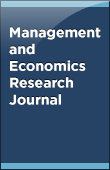
10.18639/MERJ.2022.1716925
Original Research Article
Nov 21, 2022
Small, medium and micro enterprises (SMMEs) are recognized for promoting the livelihoods of the poor and for economic growth. The purpose of this study is to investigate how load-shedding affects the performance of SMMEs in the food industry in South Africa. The study was conducted in the Central Business District and Summerstrand areas in Gqeberha (formerly Port Elizabeth). The study is explorative and adopts a qualitative research design. The study population was made up of SMMEs owners in the food industry, with paid employees ranging from 5 to 200 people in the Central Business District and Summerstrand areas within Gqeberha (formerly Port Elizabeth). The purposive sampling method was utilized to select the study participants. The study revealed that load-shedding affected the capacity of SMMEs to provide quality products and services to their customers. To mitigate the effect of power outages, SMMEs adopted alternative power sources like backup generators and adjusted their operations to keep their businesses running. Also, the study confirmed that planned load-shedding enables SMMEs to plan and alleviate the effects of load-shedding. The study concluded that load-shedding disrupts the activities of SMMEs, which impedes customer satisfaction, leading to poor business performance.
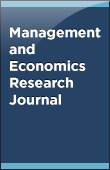
10.18639/MERJ.2022.9900070
Original Research Article
Sep 30, 2022
Economic integration within regional trading blocs yields enormous benefits in increased economic growth, trade, and investment. This study aims to analyze the causality and cointegration between GDP, foreign direct investment (FDI), and export for BIMSTEC nations using time series data from 1997 to 2020. The VAR model-based Granger Causality test is used. The results show a bi-directional correlation between FDI and economic growth and unidirectional causality between FDI and economic growth to exports. The findings indicate that attracting FDI to BIMSTEC nations boosts economic growth and exports.
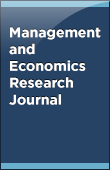
10.18639/MERJ.2022.9900071
Original Research Article
Sep 27, 2022
The commercial banks in Kenya have been recording declining performance over the recent past, with the lower-tier banks being the hardest hit. As a result, several banks in the lower-tier, such as Chase Bank, Dubai Bank of Kenya, and Imperial Bank, have been put under receivership. The collapse of banks does not give a good reflection of the sustainability of the banking system. Thus, the signals of poor financial performance need to be addressed promptly as the collapse of the banking system could also have a ripple effect on other sectors. The Kenyan banking sector is categorized into tier I, II, and III. The categorization is dependent on the size of the bank. The decline in profitability of the banking sector has affected tier II and III most. Also to note is that Tier one is made up of six giant banks that control close to half (49.9 percent) of the market, which begs the question as to whether the size of the bank has any influence on the performance of the banks. Therefore, this study sought to determine whether external financing influences Tier II and III performance and whether the bank size moderates this influence. Descriptive and explanatory research designs were employed in the study. The study population was 37 commercial banks in Tier II and III of the Central Bank's Lower-tier classification. Secondary data were adapted in the study for the years 2016 to 2020. After data cleaning, 26 banks were retained (70%) for further analysis. Data collected was analyzed by use of both descriptive and inferential analysis. Descriptive statistics included means, standard deviations, skewness, and Kurtosis, while inferential analysis included Multilevel Mixed Model Analysis and Hierarchical Multiple Linear Regression. The model coefficients show that equity has a positive and statistically significant relationship with the performance of lower-tier banks in Kenya measured using net profit margin (β=.229, p-value=.036<0.05). Further, the study found that size moderates the relationship between external equity and performance as an introduction of size in the model change R2 by .035 (p-value = 0.001). The study thus concludes that external equity capital positively influences the performance of lower-tier banks in Kenya, while size moderates the same. The study recommends that a bank evaluate when to use external equity funding, although external equity funding may be costlier. As a recommendation, lower-tier banks are encouraged to use external equity as this will improve their performance. Lower-tier banks are also encouraged to increase their asset base as their size moderates the banks' performance.
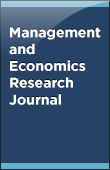
10.18639/MERJ.2022.9900056
Original Research Article
Jul 29, 2022
Special Issue S7: “Collegiality as a Management Practice”
This paper examines the collegiality of the Marxists and Naturalists of Social Justice theories toward ethical education in enhancing collegial management and leadership for community disability services for the benefit of community health and social work practices pertaining to post- COVID-19. Consequently, the collegiality of the Marxists and Naturalists of social justice theoretical ethical education was addressed within and linked with the four goals of the Global Social Work and Social Development Educational Commitment (GSDEC) for Action, thus, interconnecting the concepts above with the community disability services of health and social work practices and add clarity about their implementation for post- COVID-19 evaluation. The researchers argued that reimagining social justice education in improving the benefits of innovative and stimulating multisensory approaches pursued by higher education globally would expand the characteristics of collegial imagination and inventiveness. This paper suggests an effervescent hypothetical context concerning the critical elements desirable to galvanize and endorse collegiality in Marxists’ and Naturalists’ social justice ethical education for a post-COVID-19 era.
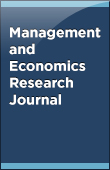
10.18639/MERJ.2022.9900062
Original Research Article
Jun 30, 2022
The paper’s purpose is to explore the policy implementation of African polity amidst economic integration development and sustainable growth. Most African countries have, over the years, suffered from severe macroeconomic disequilibria, foreign debt service burdens, over-valued currencies, and lack of policy Implementation; this caused linger highly behind in terms of development. In these situations, it is logical for one to expect the full integration of Africa in terms of trade and migration, using the Southern African subregional integration as a case study. Qualitatively, this paper collected and analyzed data based on content, using secondary sources from different domains. The neo-functionalist theory was applied, and findings show a failure to meet set targets in the SADC plan, which has established a bad precedent for the subregions for African development. The failure is seen as lacking ethical leadership. It recommends that there is a need for African states to improve their infrastructure, recognize the capacity of the private sector to generate wealth, and induce development with open economies to member states.
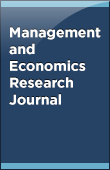
10.18639/MERJ.2022.9900055
Original Research Article
Jun 30, 2022
Special Issue S7: “Collegiality as a Management Practice”
The recent deaths of mentally disabled persons at the hands of police, both in the United States and South Africa, during the earlier COVID-19 pandemic and the subsequent other similar issues, call for justice for victims, which are some of the sampled evidence of the precarious position persons with disabilities find themselves in. This article responds as an inquiry from the viewpoint of the collegiality on post-COVID-19 repercussions on community disability services. The researchers peruse evidence of the prioritization of social justice ethical education toward enhancing collegiality in community disability services for the benefit of community health and social work practices in the eventual post- COVID-19 aftermath in Africa. The articles’ reviews, synthesis, and concept-plotting applications utilize a systematic review of literature that rely on secondary data. The article made use of 110 out of 235 articles that were inspected, analyzed, and reckoned to be appropriate and incorporated the views gleaned from scoping searches of JAMA, The Lancet, Scopus, Elsevier, Cochrane, Wiley-online, Pro-Quest, Sabinet, Ebsco-Host, Science-Direct, Sage-Pub, and SAGE-Journals libraries. Thus, this article utilized three of the five main social justice theories for community disability services. The connected issues on collegiality in terms of its management and leadership for ethical, social justice pedagogy angled that prioritizing social justice and ethical education should improve practices of education in Africa. Consequently, we argued that the collegiality in the prioritization of social and ethical education should be addressed and offered a vibrant hypothetical framework regarding the essential ingredients needed to activate and enact collegiality in social justice ethical education for a post-COVID-19 era.
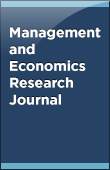
10.18639/MERJ.2022.9900060
Original Research Article
May 30, 2022
Monetary policies have a history of changing over time as central banks seek frameworks that suit the current state of their economies. In this research, the objective was to re-examine the famous Taylor rule (augmented to include the exchange rate) and proceed to establish its validity in the wake of recent unconventional policy developments from the United States. The Taylor rule posits that interest rates respond to the deviation of inflation from a given target and the output gap. The study is limited to five emerging market economies namely Brazil, Chile, Mexico, South Africa, and Turkey which are all inflation targeting economies with quarterly data observed between 1998 and 2020. Overall, the variables exhibited a mixed order of integration which necessitated the use of the ARDL bounds testing procedure in the time series framework. The study also invoked the panel vector autoregression model with impulse response functions computed using the local projections method. The study observed two main results. First, there is evidence that interest rates respond to inflation dynamics and demand fluctuations both in the short-run and long-run in most of these countries as predicted by the Taylor rule. Second, there is evidence of a significant association between policy rates and the exchange rate.
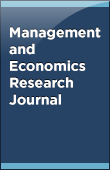
10.18639/MERJ.2022.1514854
Original Research Article
May 30, 2022
For the success of any business, there is a need for continuous improvement of the competitive advantage. The ever-changing economic environment is a big challenge for small and medium enterprises (SMEs) especially those that don’t possess strategic plans. In the recent turbulent times caused by globalization, SMEs are facing challenges and this has seen a number of them collapsing. The purpose of this study was to examine the nexus between capacity-building strategic renewal and performance of youth-owned agro-processing SMEs in selected counties in Kenya which variables of the study were investment training, management skills training, and bookkeeping training. The study was anchored on transformation learning theory and the research design adopted was a descriptive cross-sectional survey. The study targeted youthowned agro-processing SMEs registered by the Ministry of Trade and Industry and the four County Governments namely, Nyeri, Kirinyanga, Murang’a, and Nyandarua. The sampling frame was 287 and the population under study was 287 youth-owned agro-processing SMEs. The study gathered primary data using a semi-structured questionnaire with predetermined questions and highly standardized techniques of recording. The findings of the study were presented by the use of descriptive and inferential statistics. From the findings, the overall model of the study was R2 = 0.498, meaning that capacity-building strategies explained 49.8% of the variation in performance. The study coefficients was 0.834, tis 19.141, which was >2, and a p-value of 0.000 which implied that there was a statistically significant influence of capacity-building strategies on the performance of youth-owned agro-processing SMEs. In conclusion, it was noted that capacity-building influences the performance of the youth-owned agro-processing SMEs in selected counties in Kenya. This study recommends that there is a need for SMEs to further establish capacity-building strategies.
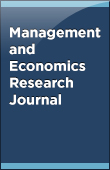
10.18639/MERJ.2022.9900045
Original Research Article
May 30, 2022
Special Issue S6: “Global Economic Issues”
TANKS is a tangible coding game that introduced coding to South African 10–14-year-old learners. It is aimed to initiate and stimulate learning using facilitators. Facilitators use untraditional teaching methods because they are influential on training success. Also, facilitators undertook face-to-face contact sessions, since TANKS requires the use of a smartphone and tokens. A phenomenological qualitative study design approach of six facilitators of a face-to-face interview using an adapted semi-structured questionnaire was used. All interviews were audio-taped, transcribed verbatim, and thematically analyzed using an explanation-building strategy applied. Results identified themes where each theme was further explained in the study. Limitations included small interviewee numbers because of a nationwide COVID-19 restrictive lockdown. The feed-forward learning flow model concluded that supportive school leadership by principals or teachers creates an academic coding culture. This culture will necessitate learners’ competitive behavior by adopting a performance-based appraisal practice, to improve the coding interest and TANKS performance by learners.
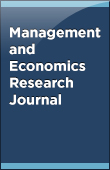
10.18639/MERJ.2022.9900053
Original Research Article
May 30, 2022
Special Issue S7: “Collegiality as a Management Practice”
The study explored the importance, value, and challenges of employee collegiality in the workplace at the institute of higher learning. Workplaces such as universities have traditionally been disconnecting places where “collegial cooperation among academic staff is not common practice, for them to take the time to talk or work together.” Employees require ways to connect in ways that benefit their students, contribute to making their work more interesting, and shape humans in such a way that it remains dynamic and pertinent. For a long time, the workplace has been subject to rationalizing reforms, not least in correlation with the exceptional development and transition from elite to mass education. There has been an explosion in the emergence of various modes of organizing, allocating resources, and evaluating results. Premised on a review of existing literature, this article highlights the significance of collegiality among employees at the workplace and identifies the major positive outcomes of truly collaborative and collegial backgrounds in the institutes of higher learning. The study finds that collegiality is a proficient trait or attribute as well as a management theory; it is the companionship and cooperation between colleagues who share responsibility.
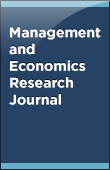
10.18639/MERJ.2022.1557092
Original Research Article
Apr 28, 2022
The coronavirus pandemic presents enormous health and economic challenges to the United States and the global economy. The coronavirus disease and the measures taken to contain it led to a severe contraction of the US economy not seen since the Great Depression. The Federal Reserve made a swift response to ensure the stability of the financial market and promote economic growth. Initially, it cut the federal fund rate to its effective lower bound, expanded its long-term asset purchases, and created new reserves much of it used to finance the stimulus and keep the long-term interest rate low. Despite a massive injection of liquidity, the inflation rate remained low until the second quarter of 2021 and there was no pressure to slow the growth of the central bank balance sheet or raise the interest rate. Because of the unexpected surge of the inflation rate in early 2022 to a level not seen since 1982, the Federal Reserve began to raise the funeral fund rate and indicated that it will reduce its asset holdings. If the inflation rate persists, not only contractionary monetary policy but also cuts in federal spending may be required.
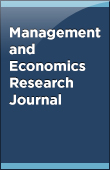
10.18639/MERJ.2022.9900069
Original Research Article
Mar 30, 2022
The purpose of this paper is to investigate the export performance of India with ASEAN countries using the Constant Market Share method for the period 2001-2019. India’s trade with ASEAN and its members is analyzed by using HS-2 digit data. The evaluation of India’s export performance is based on the “market share effect”, “commodity composition effect”, and “commodity adaptation effect”. The results reveal that the increase in India’s export performance stemmed mostly from a positive “market share effect” and least from the “commodity composition effect”. The “commodity adaptation effect” has improved during the same period. These findings lead us to conclude that India has an opportunity to find new trading partners within ASEAN and enhance its exports to those nations. It is through taking the benefits of the FTA, India can reduce its trade deficit.
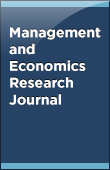
10.18639/MERJ.2022.9900064
Review Article
Mar 24, 2022
Outward Foreign Direct Investment (OFDI) as overseas investment leads to long-term repatriation of the profits from host to home country. The theoretical framework of OFDI and the determinants of the same are important elements in the international economic environment. The present study aims to build a critical discussion on Outward FDI theories and the determinants of OFDI. Researchers and policymakers in the area of international investment will be benefitted from the theoretical research.
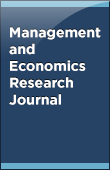
10.18639/MERJ.2022.9900068
Review Article
Mar 21, 2022
This study takes an account of the growth and development of economic ties between China and India since the inception periods. It examines the aspects that have added to the growth of this vital feature of their relationship. Further, it also highlights the obstacles, in particular to the economic relations in terms of trade scenario between the two. In addition, it provides that the future growth in economic ties of Indo-China will depend on how the two economies can effectively deal with matters such as trade inequity, border issues, lack of adequate infrastructure, market capture, and regulatory environment. These issues, if conquered, may show mounting growth in the existing degree of economic relations between the two. Therefore, strings of assistance and rivalry, both subsist at the same time.
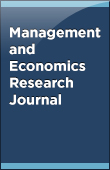
10.18639/MERJ.2022.9900067
Original Research Article
Mar 17, 2022
Frequent assessment, finance duress, cut-throat competitive atmosphere, negligible condition, the connection among colleagues as well as excessive workload may result in elevated levels of stress. Additionally, almost all researchers making an effort to forge an official persona that is definitely a new corner to these people. A descriptive research design is used in this study. A survey is performed to collect data from PhD students in Aligarh Muslim University (AMU). Data was collected using a convenience sampling method. The goal for this research was to find aspects that obstruct and hinder the progress of PhD students, with a focus on stress from the Supervisor’s Role, Peer Relations, and Personal Aspects to check their overall performance. It was observed that Supervisor’s roles, individual aspects, and peer factors have a significant impact on the overall performance of PhD Students.